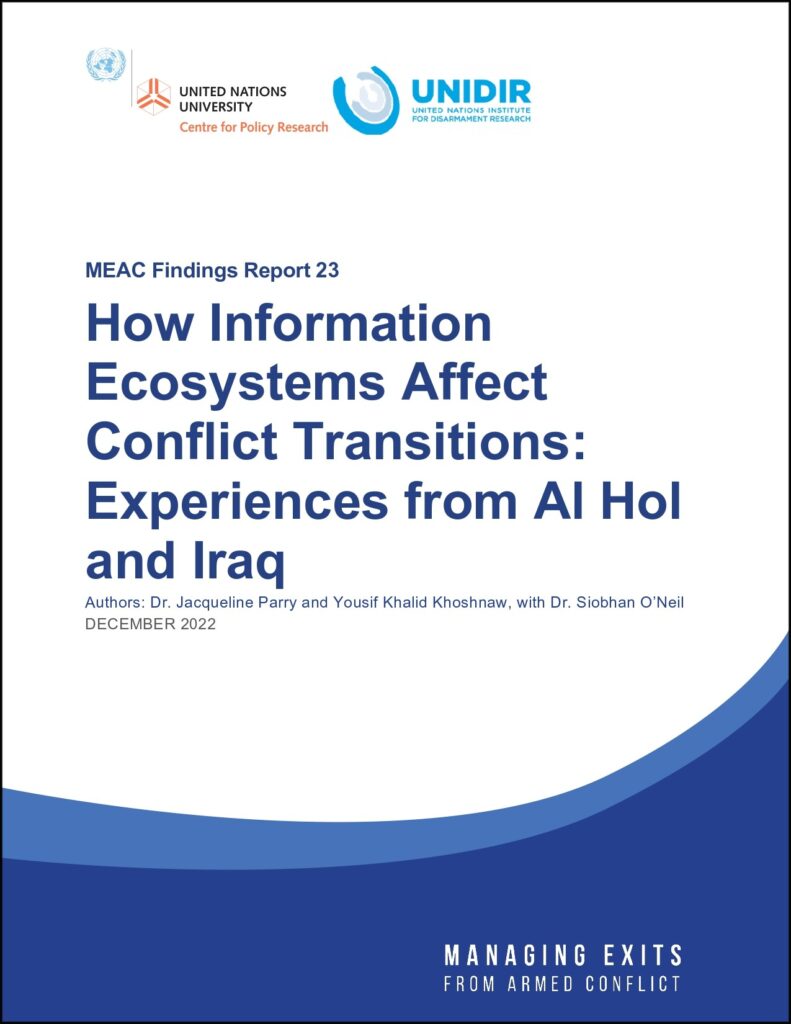This report is based on findings drawn from a number of quantitative and qualitative studies in Iraq. This includes a large-scale survey of 1,882 respondents in four areas of Iraq that were occupied by ISIL: Muhalabiyah (Nineveh), Tuz (Salah al-Din), Al Qaim (Anbar), and Habbaniya (Anbar), conducted in July 2022 in partnership with, and with support from, UNDP Iraq.
It draws heavily on research conducted with Iraqis returning from Al Hol camp in Syria through Jeddah-1 camp, with access facilitated by IOM Iraq and support from the Swiss FDFA. That component of the study consisted of a survey of 223 respondents currently residing in Jeddah-1 camp; 60 former residents of Jeddah-1 camp; and key informants in Jeddah-1 and areas of return. These research components took place between June and September 2022.
The report presents data about information ecosystems – the type and sources of information available and how they interact – that are present in Al Hol camp in Syria, Jeddah-1 camp in Iraq, and areas of return. It examines how information, misinformation, disinformation, and rumours affected decision-making and transition outcomes associated with the return and reintegration trajectories of Iraqis from Al Hol. This data may be useful to the UN, the Government of Iraq, and NGO partners working with Al Hol returnees, as well as efforts to support reintegration, community reconciliation, and broader peacebuilding efforts.
While the research presented herein is focused on the journeys of Iraqis who had been in Al Hol, many of the findings may speak to issues impacting other nationals, both in the camp and in their countries of origin following repatriation. The report ends by presenting key policy and programmatic implications of these findings.
Citation: Jacqueline Parry and Yousif Khalid Khoshnaw, with Siobhan O’Neil (2022) “How Information Ecosystems Affect Conflict Transitions: Experiences from Al Hol and Iraq,” MEAC Findings Report 23, United Nations University, New York.
